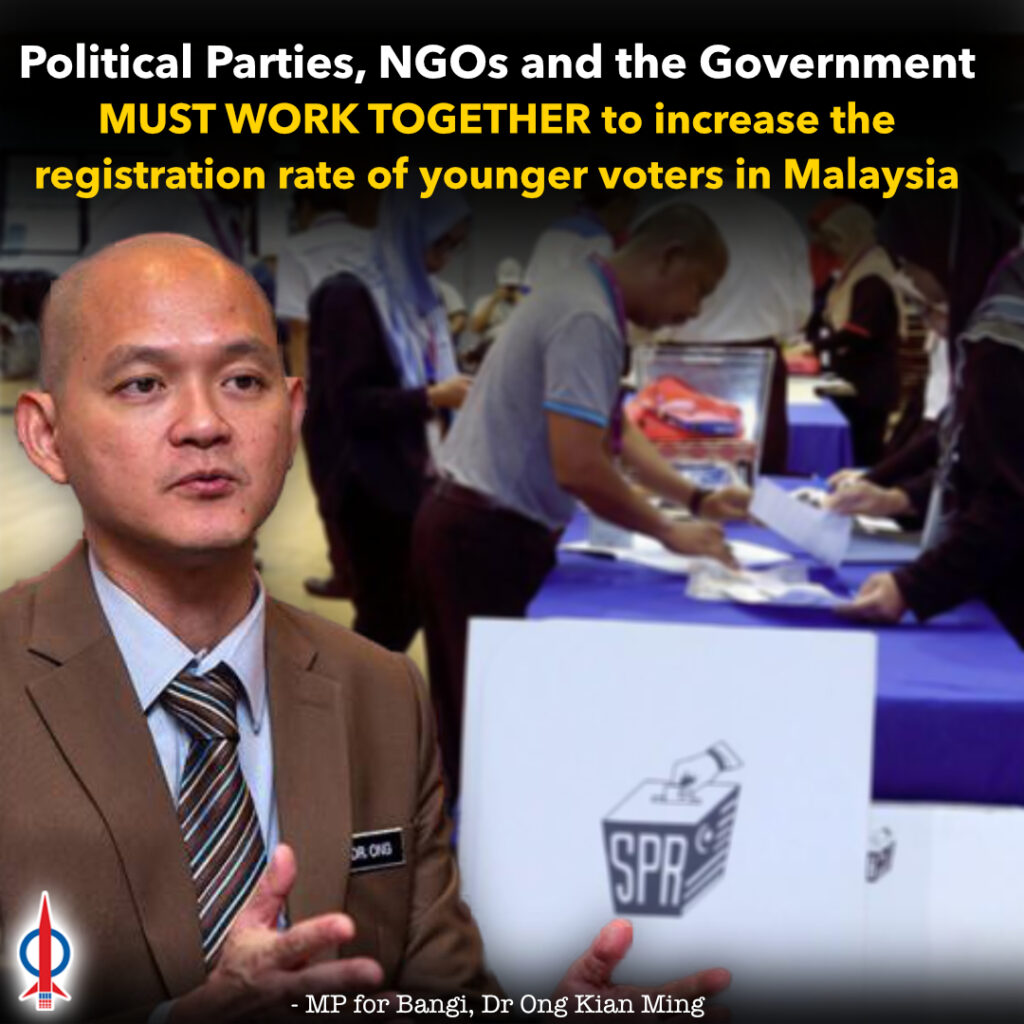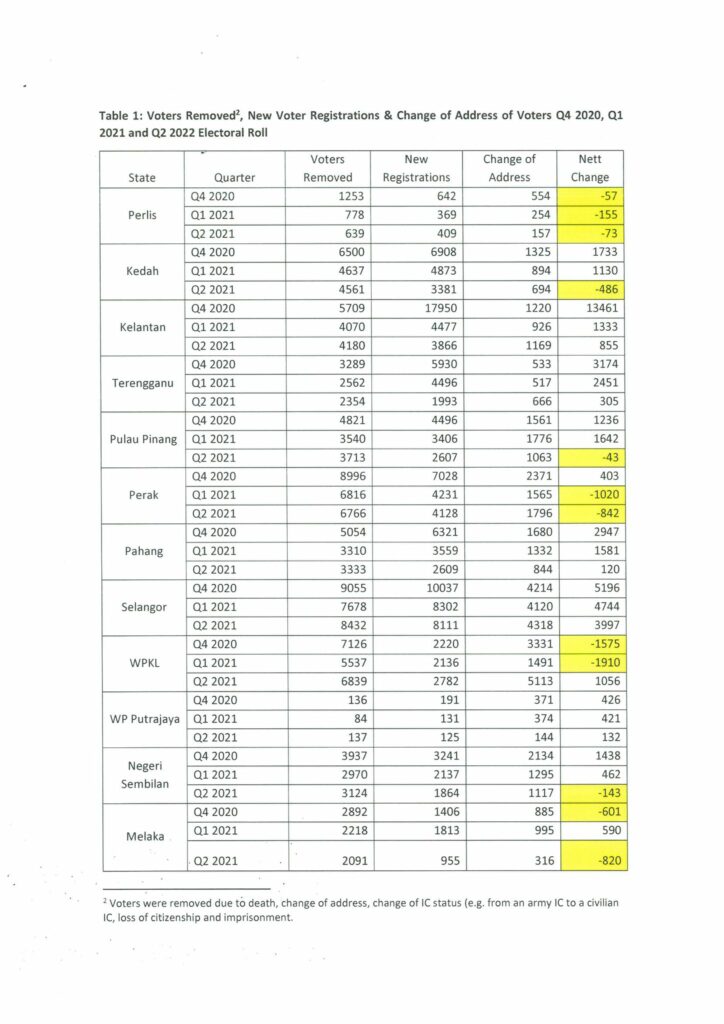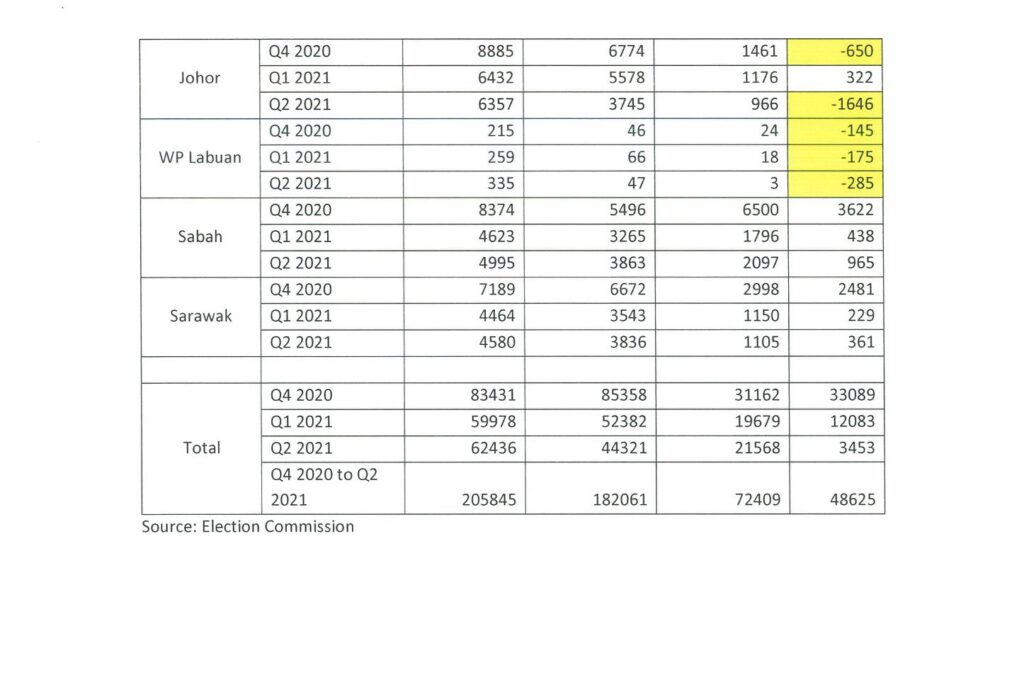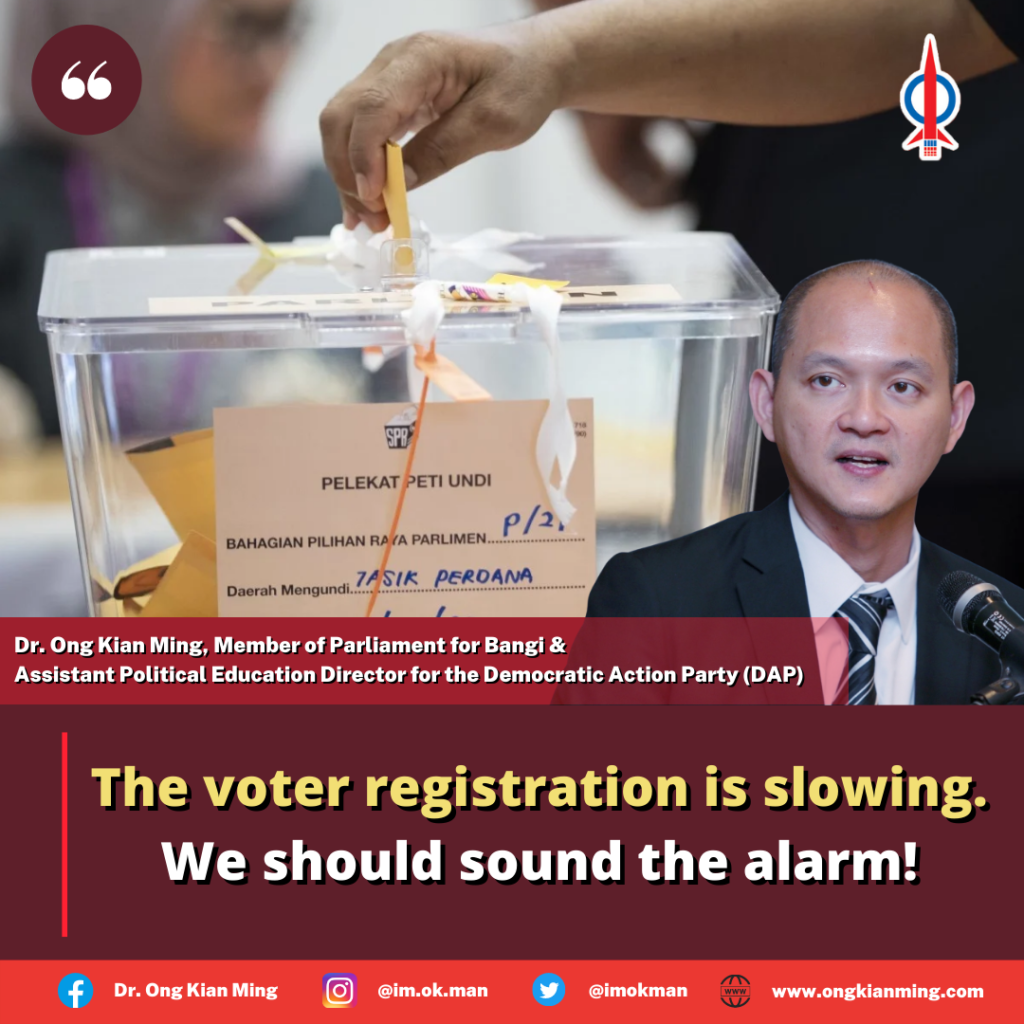Media statement by MP for Bangi and DAP Assistant Political Education Director, Dr Ong Kian Ming on 1 September 2021:

Political Parties, NGOs and the Government need to work together to increase the registration rate among younger voters before GE15
There have been many activities which have been negatively affected by the ongoing Covid-19 pandemic in the country and one of them is the registration of new voters. While the Election Commission should be praised for approving the online registration of voters since July 2019 via its MyDaftarSPR website, the reality is that some level of on the ground campaigning and activities are needed to register new voters.
According to the Election Commission’s quarterly update of the electoral roll, a total of 85358 new voter registrations were recorded in Q4 2020. This dropped to 52382 in Q1 2021 and then to 44321 in Q2 2021 which is the latest quarterly update. This means that only 182061 new voters were added to the electoral roll from Q4 2020 and Q2 2021. To compare, an estimated 500,000 citizens turn 21 every year and are eligible to register as voters.
In addition, because voters are constantly taken out from the electoral roll because of death, losing of one’s citizenship and going to prison, the nett number of additions to the electoral roll for Q4 2020, Q1 2021 and Q2 2021 were 33089, 12083 and 3453 respectively. This means that from Q4 2020 to Q2 20212, only 48625 nett additions were added to the electoral roll. There were even some states which experienced a nett DECREASE in the number of voters during some quarters.
For example, Perlis and Labuan experienced a nett decrease in the number of voters in the electoral roll in ALL 3 of the quarters surveys. Kedah experienced a nett decrease of 486 voters in Q2 2021, Penang experienced a nett decrease of 43 voters in Q2 2021, Perak experienced a nett decrease of 1020 and 842 voters respectively in Q1 and Q2 2021, KL experienced a nett decrease of 1575 and 1910 voters respectively in Q1 and Q2 2021, Negeri Sembilan experienced a nett decrease of 143 voters in Q2 2021. Melaka experienced a nett decrease of 601 and 820 voters respectively in Q4 2020 and Q2 2021, Johor experienced a nett decrease of 650 and 1646 voters in Q4 2020 and Q2 2021 (See Table 1 below).


These low new voter registration rates may be a signal that the younger generation of eligible voters in Malaysia feels more disconnected with the political system than before. They may also be concerned about venturing out to go to the post office to register to vote, for example. And many of them may not be aware that they can register as voters online because of insufficient publicity for this registration method. Political parties and NGOs would also not have been able to do their voter registration exercises at shopping malls and pasar malams and other places with high foot traffic.
To overcome these challenges including voter apathy, we need to have all of the stakeholders working together to register more voters, especially those from the younger generation.
The government needs to play its part, for example, by making it mandatory for students in the public and private universities and colleges to register as voters when they start their tertiary education. NGOs such as UNDI18 and BERSIH can also mobilize their volunteers to do voter registration and awareness programs in areas where such activities are allowed. All of us, as citizens, can encourage our friends and relatives who have recently turned 21 to quickly register as voters via the MyDaftarSPR website.
Only with a more engaged electorate, including those from the younger generation, can the public at large continue to put pressure on political parties to field responsible and qualified candidates to run for office and to vote in responsible and qualified representatives at the state and federal levels.




